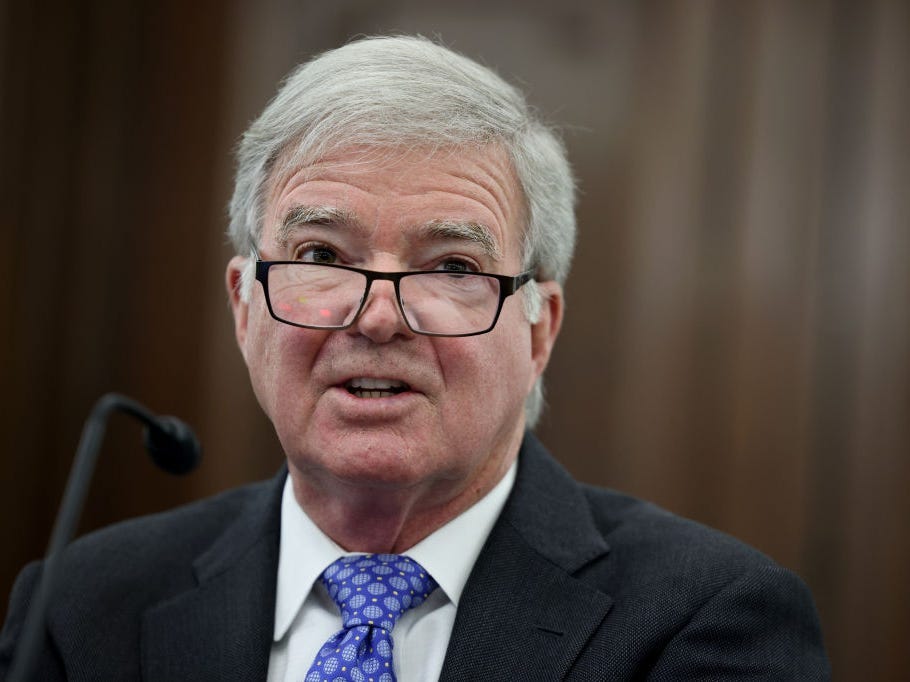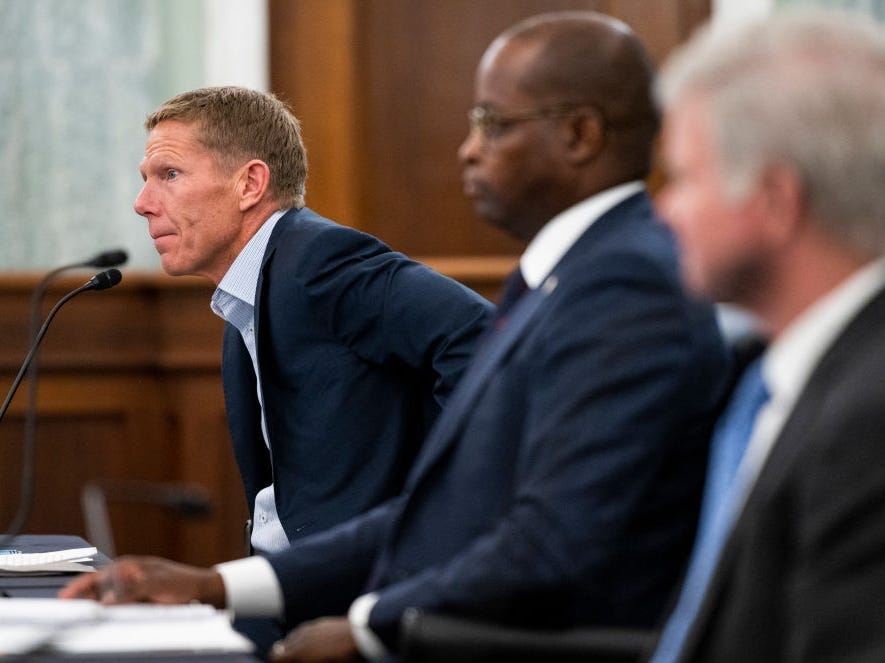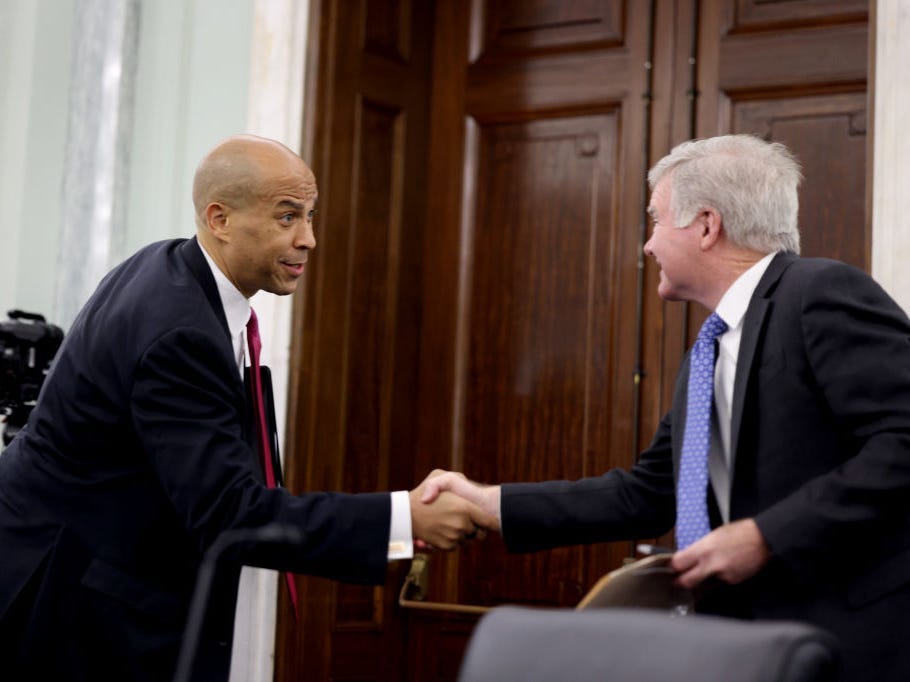
Anna Moneymaker/Getty Images
- A Senate committee held a hearing Wednesday on whether college athletes should be able to profit from endorsement deals.
- But no college athletes were invited to speak.
- Witnesses, including college coaches and the NCAA president, advocated for the athletes.
- Visit Insider's homepage for more stories.
The US Senate Committee on Commerce, Science, and Transportation held a hearing on Wednesday to address whether college athletes should be allowed to make money off endorsement deals. But they didn't invite any college athletes to speak.
Instead, the witnesses in attendance included NCAA president Mark Emmert, Gonzaga men's basketball head coach Mark Few, Howard University president Wayne A.I. Frederick, and ESPN analyst Rod Gilmore. They all advocated for a federal law that would allow college athletes to independently profit from their name, image, and likeness (abbreviated NIL), citing the importance of athletes' financial wellbeing and rights in a free-market economy.
But aside from Gilmore – who played football and baseball at Stanford – none of the other witnesses played college sports themselves. The only other person at the hearing who had experience as a college athlete was New Jersey Sen. Cory Booker, who also played football at Stanford.
Much of the hearing focused on protecting the NCAA
College athletes in 19 states are set to gain the right to profit off of NIL within the next two years, thanks to individual state laws. Seven of those laws go into effect on July 1.
So the NCAA is looking to Congress to pass a nationwide law that would preempt these state laws by standardizing NIL rights for all college athletes regardless of the state where they play.
The association's hope is that this future law would include guard rails to prevent disparities between states and protect the NCAA from anti-trust lawsuits. The NCAA is also pushing to maintain amateurism status for college athletes.

Bill Clark/CQ-Roll Call, Inc via Getty Images
"We are urging congress to pass legislation creating a single national NIL standard," Emmert said. "This task is made virtually impossible by the many different name, image, and likeness laws that are passed at the state level along with the many ongoing litigation threats."
Washington state, where Few coaches, has not passed an NIL law. So he said at the hearing that his program is depending on Congress to pass national legislation so that he does not lose incoming high school recruits to programs in states that do grant college athletes NIL rights.
"We need your help," Few told legislators. "This is not an issue the NCAA and individual states can fix."
Rushing out a federal law might not benefit athletes
Gilmore and Booker each delivered testimony that focused on why college athletes deserve to profit off of NIL. Gilmore said the main reason that the NCAA and college programs are pushing for a national NIL law is because they think the law could be written in a way that still protects their own sponsorship revenue.
"The NCAA believes, and I've had coaches and administrators tell me this, that third parties will pay less to athletic departments if those third parties are allowed to pay athletes directly," Gilmore said. "The athletic departments want to protect their revenue stream, which is why the NCAA wants a national NIL law."
So Gilmore later asked the senators to only create a national NIL law if it benefits the athletes themselves, not simply to override differing state laws.
"If the states have different rules, players have a choice to look at different jurisdictions in which to play college athletics," Gilmore said. "There is no compelling need for a national image and likeness law if the players already have that right given by the states."

Anna Moneymaker/Getty Images
Booker, meanwhile, advocated against rushing a bill through Congress for the NCAA's benefit.
"Now is the time for the NCAA to evolve as an organization," Booker said. "Some people want to make this simple. Pass a narrow piece of legislation as this July 1 deadline comes, which I admit is an existential threat to sports as we know it. But I'm saying no, we can not do that. I encourage this committee to focus on the broader concerns."
Booker authored the radical "College Athletes' Bill of Rights" last year - a groundbreaking proposal to give all college athletes a share of the NCAA's media revenue, along with healthcare and unlimited scholarship money until they complete a degree.
"I've talked to players, and I'm sorry there's not players here for this hearing that have painful stories about spine injuries, head injuries, neck injuries, who went out of pocket to pay for them with no help from the universities that made millions of dollars off of them," Booker said. "These things should be painful for all of us, they've been talked about for decades since I was playing almost 30 years ago and nothing has changed."